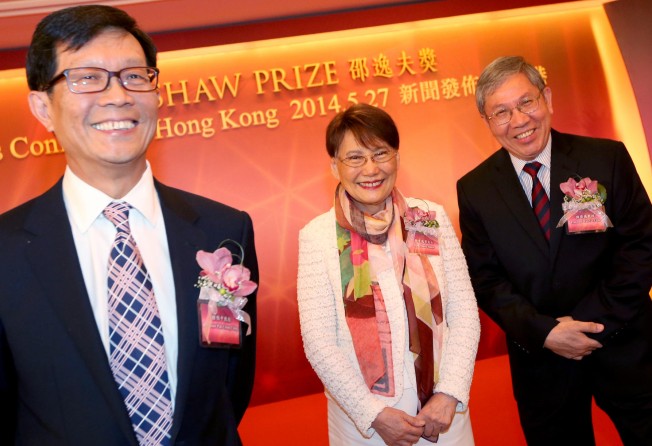
Shaw scientists 'driven by curiosity'
Foundation defends role of prizes as this year's six winners announced

The Hong Kong foundation handing out the annual multimillion-dollar Shaw Prize has defended the role of such awards in spurring scientific progress, as it announced this year's winners.

A commentary last year in the science journal Nature warned that prizes perpetuated the idea that science was a solo venture - and could even end up narrowing the research scope of scientists by encouraging them to pursue a small range of studies that benefited the founders of a prize.
Since 2012, a number of new prizes sponsored by entrepreneurs have emerged. They include the Breakthrough Prize in Fundamental Physics and Life Sciences - started by Google's Sergey Brin, Mark Zuckerberg and Priscilla Chan of Facebook, Alibaba's Jack Ma and Cathy Zhang, venture capitalist Yuri Milner and 23andMe co-founder Anne Wojcicki - and the Tang Prize, set up by Taiwanese developer Dr Samuel Yin.
Even the winners have questioned the role of such prizes. On receiving his US$3 million Breakthrough Prize last year, theoretical physicist Alexander Polyakov said: "Such big prizes could become very influential and they can have a positive impact, or they can be very dangerous."
The Shaw Prize Foundation yesterday announced this year's six winners. The prize for astronomy went to professors Daniel Eisenstein, Shaun Cole and John Peacock for their work measuring the expansion of the universe. The prize for life sciences and medicine was shared by Kazutoshi Mori and Peter Walter for their work on how the building and transport of proteins is regulated. The mathematics prize went to George Lusztig for his work in algebra, algebraic geometry and representation theory. Set up by the late Sir Run Run Shaw in 2002, each prize carries a cash award of US$1 million. The laureates will receive the awards at a ceremony in September.